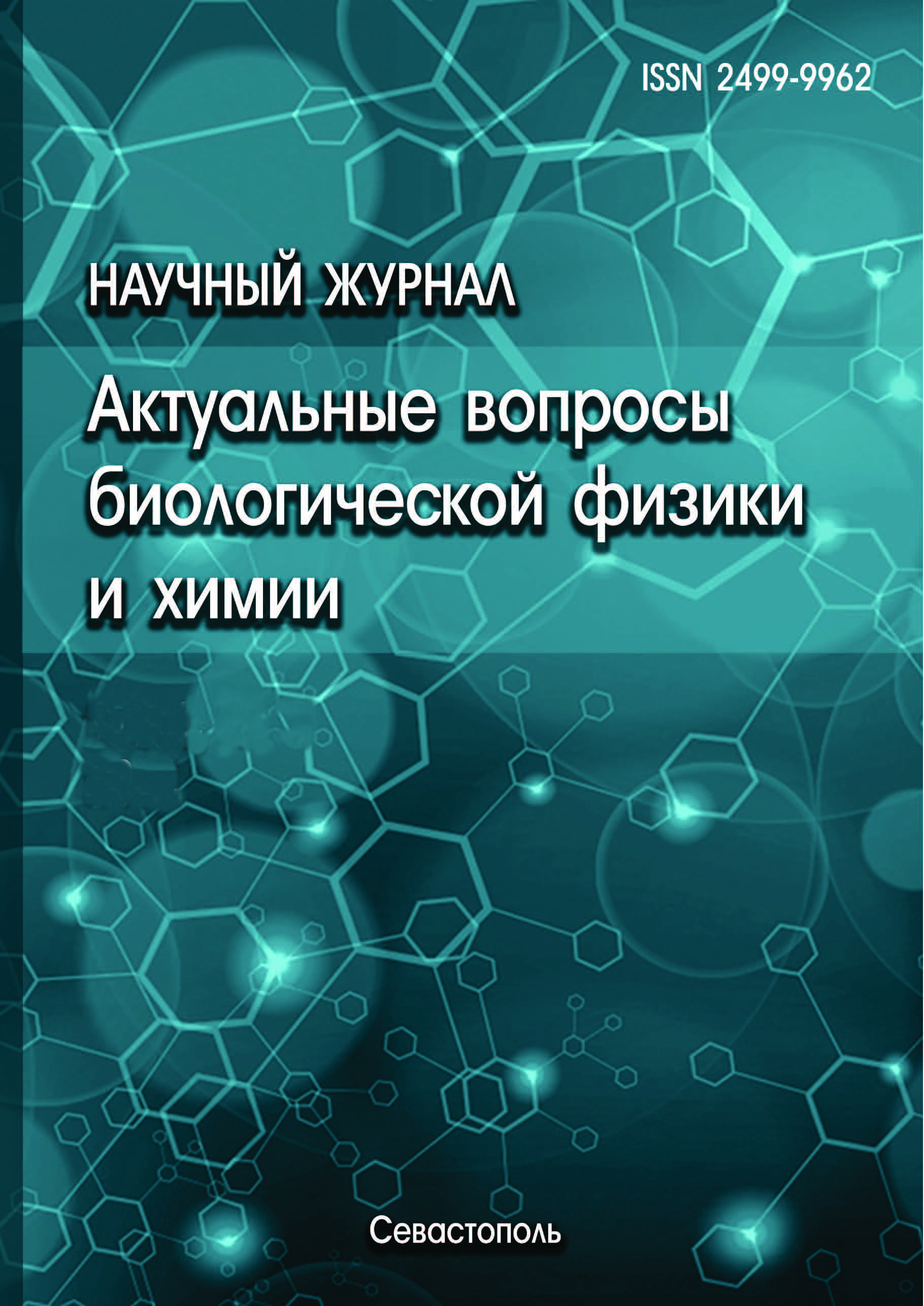Moscow, Moscow, Russian Federation
Federal Research and Clinical Center of Intensive Care Medicine and Rehabilitology
Moscow, Moscow, Russian Federation
Moscow, Moscow, Russian Federation
Moscow, Moscow, Russian Federation
Moscow, Moscow, Russian Federation
Moscow, Moscow, Russian Federation
A.N. Bach Institute of Biochemistry of the RAS
Moscow, Moscow, Russian Federation
Federal Scientific and Clinical Center of Medical Rehabilitation and Balneology of the Federal Medical and Biological Agency of Russia
Moscow, Moscow, Russian Federation
It is well known that the action of ionizing radiation causes oxidative stress in the cells of the body and leads to the synthesis of reactive oxygen species, which lead to multiple damage to cellular DNA, including the formation of oxidized bases. In this paper, we consider the effect of radiation-induced oxidative modification of plasmid DNA on their penetration into human mesenchymal stem cells. To study the role of oxidative DNA modification in cell penetration, a genetic construct was created based on the pEGFP-C1 (pC1) vector, GenBankAccession: U55763, containing as an insert an artificially synthesized DNA fragment containing a poly-G region (p12G) serving as target for efficient oxidation of the cloned DNA fragment. As a "marker", the selected vector contains the EGFP fluorescent protein (GFP) gene. Flow cytometry and fluorescence microscopy showed that recombinant constructs based on the pEGFP vector containing duplicated poly-G regions and Gn repeats penetrate cells much more efficiently than the original pEGFP vector. Exposure to radiation at a dose of 50 cGy, which causes an increase in the level of 8-oxodG in plasmids after irradiation, leads to a more intense penetration of oxidized plasmids compared to a similar experiment without irradiation.
human mesenchymal stem cells, ionizing radiation, recombinant constructs, oxidized DNA, 8-oxodG, oxidative stress
1. Leach, J.K., Van Tuyle G., Lin P.S., Schmidt-Ullrich R., Mikkelsen R.B. Ionizing radiation-induced, mitochondria-dependent generation of reactive oxygen/nitrogen. Cancer Research, 2001, vol. 61, no. 10, pp. 3894-3901. EDN: https://elibrary.ru/LNVVPN
2. Ermakov A.V., Konkova M.S., Kostyuk S.V., Izevskaya V.L., Baranova A., Veiko N.N. Oxidized extracellular DNA as a stress signal in human cells. Oxidative Medicine and Cellular Longevity, 2013, vol. 2013, pp. 649-747.
3. Kostyuk S.V., Konkova M.S., Ershova E.S., Alekseeva A.J., Smirnova T.D., Stukalov S.V., Kozhina E.A., Shilova N.V., Zolotukhina T.V., Markova Z.G., Izhevskaya V.L., Baranova A., Veiko N.N. An exposure to the oxidized DNA enhances both instability of genome and survival in cancer cells. PLoS ONE, 2013, vol. 8, no. 10, p. e77469. DOI: https://doi.org/10.1371/journal.pone.0077469; EDN: https://elibrary.ru/SKWIKB
4. Kozhina E.A., Ershova E.S., Okorokova N.A., Veiko V.P., Malinovskaya E.M., Sergeeva V.A., Konkova M.S., Kutsev. S.I., Veiko N.N., Kostyuk S.V. Extracellular DNA containing (dG)n motifs penetrates into MCF7 breast cancer cells, induces the adaptive response, and can be expressed. Oxidative Medicine and Cellular Longevity, 2019, p. 16.
5. Konkova M., Abramova M., Kalianov A., Ershova E., Dolgikh O., Umriukhin P., Izhevskaya V., Kutsev S., Veiko N., Kostyuk S. Mesenchymal Stem Cells Early Response to Low-Dose Ionizing Radiation. Frontiers in cell and developmental biology, 2020, vol. 8, p. 584497.
6. Sergeeva V., Ershova E., Veiko N., Malinovskaya E., Kalyanov A., Kameneva L., Stukalov S., Dolgikh O., Konkova M., Ermakov A., Veiko V., Izhevskaya V., Kutsev S., Kostyuk S. Low-Dose Ionizing Radiation Affects Mesenchymal Stem Cells via Extracellular Oxidized Cell-Free DNA: A Possible Mediator of Bystander Effect and Adaptive Response. Oxidative Medicine and Cellular Longevity, 2017, p. 9515809.
7. Midorikawa K., Hirakawa K., Kawanishi S. Hydroxylation of deoxyguanosine at 5' site of GG and GGG sequences in double-stranded DNA induced by carbamoyl radicals. Free radical research, 2002, vol. 6, no. 6, pp. 667-675.










